Waukesha will soon start pumping in Lake Michigan water. How this man made it happen
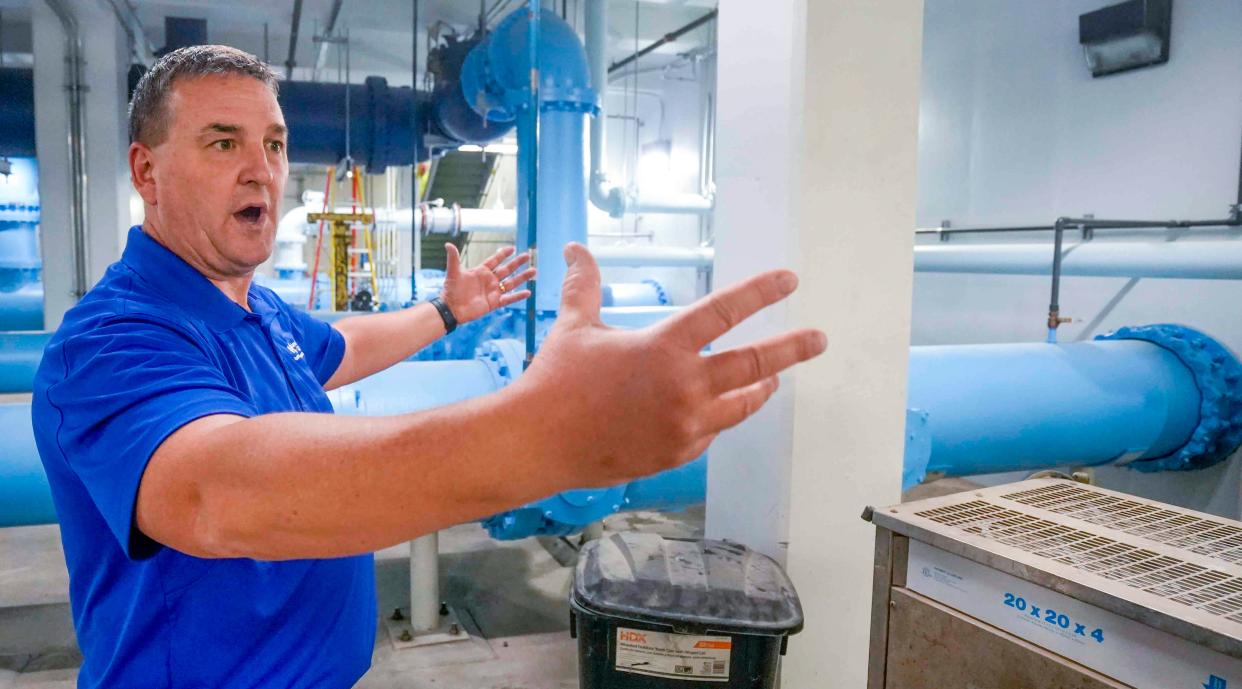
In April 2016, Dan Duchniak set out on a road trip that defined his career.
Duchniak, the general manager at Waukesha Water Utility, was joined by Mayor Shawn Reilly. The pair were on their way to visit every Great Lakes state to make their case for why the city of Waukesha needed Lake Michigan’s water.
Decades ago the city had realized that its groundwater supplies were dropping and contaminated with naturally occurring radium. The city needed a new water source.
Waukesha was the first community to ask for water to be diverted from Lake Michigan under the Great Lakes Compact, the landmark agreement between the Great Lakes states that says water can’t leave the basin. To become an exception to that law, a community needs the approval of all eight state governors as well as the premiers in Ontario and Quebec.
In the middle of the eight-hour drive from Lansing, Michigan, to Harrisburg, Pennsylvania, Duchniak turned to Reilly and asked him to drive. He felt the heaviness of what he was asking for.
After years of filing thousands of pages in their application, they had just met with Michigan’s attorney general and five other lawyers. For two hours, questions ping-ponged from one side of the room and then the other. Michigan sits entirely within the basin and is often considered the watchdog of the lakes.
The intensity of that meeting was like a cross-examination, Duchniak said, but prepared him for the rest.
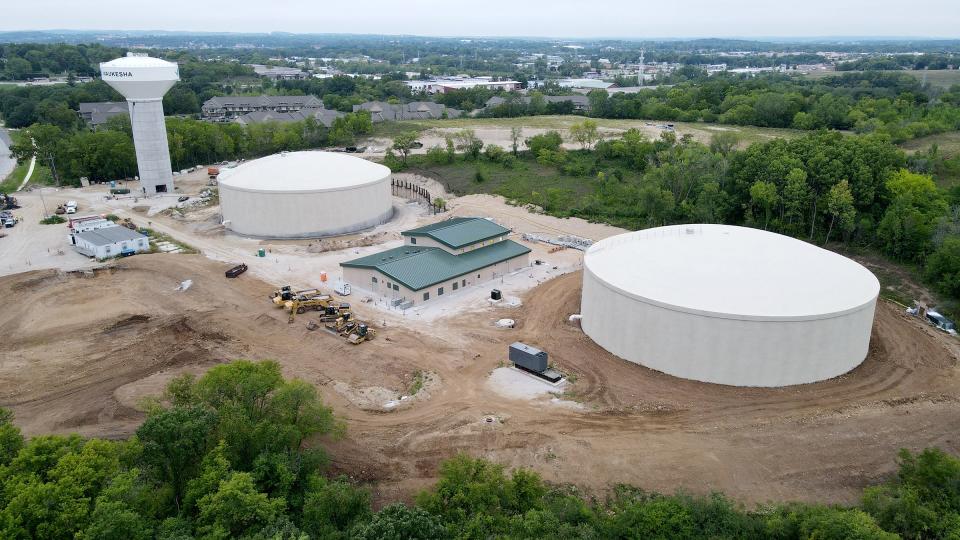
A few months later the Great Lakes’ governors gave their answer, allowing Waukesha to become the first exception.
Seven years later, beginning in mid-September, the city’s residents will drink Lake Michigan’s water – a decades-long journey that Duchniak saw start to finish.
And while monthly water bills will increase, Duchniak said the city is now guaranteed a long term water supply.
Duchniak said he’s received many calls from people in the drought-stricken West since the diversion was approved. People ask how he did it and how he managed different jurisdictions to get approval from the states and provinces.
Duchniak sat down with the Journal Sentinel and reflected on what it was like to bring Lake Michigan’s water to Waukesha. The conversation was edited for clarity and length.
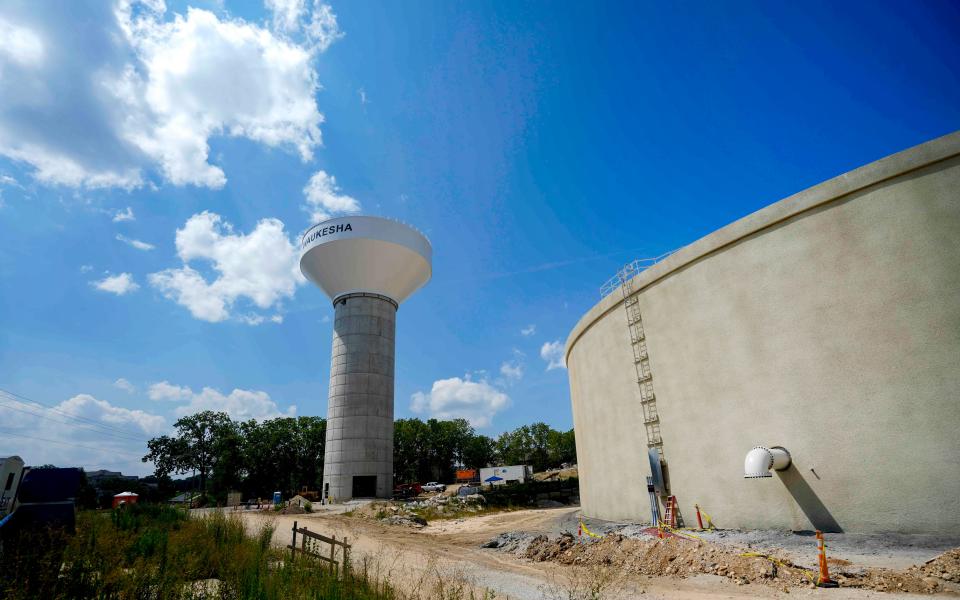
What was like to get the Waukesha diversion approved under the Great Lakes Compact?
When I came to Waukesha 20 years ago, I really had no idea that I was going to be doing a project like this. And I learned within the first six months that it wasn't just about radium. It was about sustainability for the long term.
I'm a big believer in "you get what you pay for." And if you do something, you only want to do it once and do it the right way. I let the facts and the science drive the decisions. When you do that it becomes very difficult to fight and challenge.
I never thought that I would be involved in politics this much. At the time, the Great Lakes Compact was being developed. We were constantly communicating with the governor's office to make sure that Waukesha had an opportunity in the compact. We weren't the only ones that wanted to apply for water, but everyone in the Great Lakes region knew that Waukesha was going to be the first to apply if there was an option.

Once the compact was approved in 2008, we started developing an application. And in the meantime, we were looking at our alternatives in case we were turned away.
We submitted the application in 2010. The Wisconsin DNR reviewed it and in 2013 asked us to resubmit and provide additional technical details. We had over 3,000 pages. It was like a graduate thesis. In 2016, the Wisconsin DNR let the other states know that they thought we had an approvable application.
The mayor and I made the decision to meet with every DNR and governor's office in the Great Lakes states. After that, I knew we had a good shot. But we still had environmental groups spending millions of dollars to oppose us.
Was there ever a time you thought the application was going to fall through?
Former Gov. (Mark) Dayton in Minnesota was tied in with the environmental community. I think environmental groups honed in on Minnesota as their shot to get us turned down. And there was a person in the Minnesota governor's office that was from Wisconsin, and she opened the door and helped us pass information along.
But I didn't know at that point.
We made it known that if we were denied, we were going to file a lawsuit. We had attorneys at the time that were preparing because they felt that if the compact implemented a standard that was impossible to be met, then the compact should be thrown out.
I didn't know driving to Chicago on the day of the meeting if we're gonna get a "yes" or "no." They went in alphabetical order, so Wisconsin was the last vote. And I was like: "We did it."
I walked out of the room because I was afraid that if I talked to somebody tears would start coming out of my eyes.
What do you feel was the biggest misconception about the project?
When people think of diversions, they think we're going to take something and deplete the resource. I think the big misconception was that we weren't returning the water. One of the things we should be proud of as a community is that we are returning all of the water to the Great Lakes basin.
Environmentalists put out a video and their message was so simple: Protect our lakes. Ours was very difficult. But having the foundation of facts and science was one thing that really got us through the tough times.
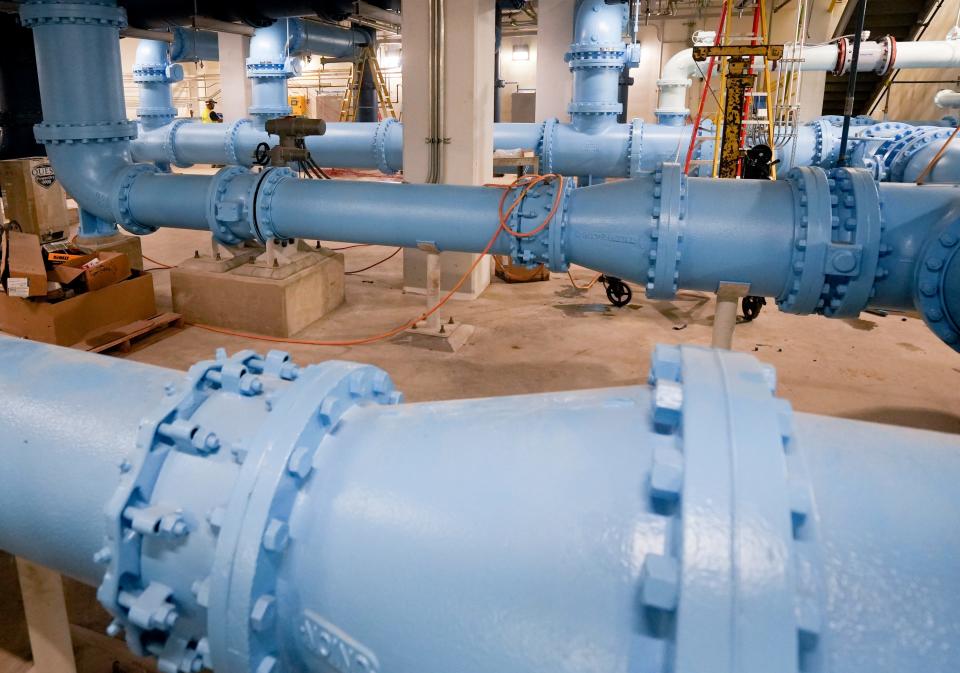
Do you feel like you have the support of the community?
We did a lot of public outreach. I had a meeting in every aldermanic district, and we averaged 75 to 100 people at every meeting, which is amazing for a public meeting and public input. Those meetings would take up to three hours and I'd answer every question the public had. We showed what was going to happen to water bills.
And if you were going to ask me if we were going to have an agreement with the city of Milwaukee to supply us water, I would have laughed because Milwaukee and Waukesha did not get along. We went through the whole approval process with the city of Oak Creek. And then at the last minute, Milwaukee came in and said, 'What will it take to have Milwaukee be your supplier?'
And this was the beauty of having those public meetings. A lot of people said if you can save us $200 a year (compared to how much it would cost to purchase water from Oak Creek), we will think about it. So we were able to negotiate an agreement that saved our residents $224 a year.
We were able to break down barriers where politicians were willing to talk to one another. And it shows that we can actually work together.
Is this a personal legacy for you?
It’s not just for me. I think it's for the city of Waukesha. I'm really happy that it will have a sustainable water supply for the long run.
Yes, there are increases, and some people will say that it's not reasonable. But we projected back in 2016 that we'd be at $155 a month and we're going to come in at $154 a month. We told everybody exactly how this was going to play out and exactly how it was going to happen. And I'm really proud that people are going to get the solution they need and it's going to come at a reasonable cost.
The easy thing for me to do then would have been to treat Waukesha's existing water supply and be done with it. But if you're gonna do it and spend the money, spend it once and do it right.
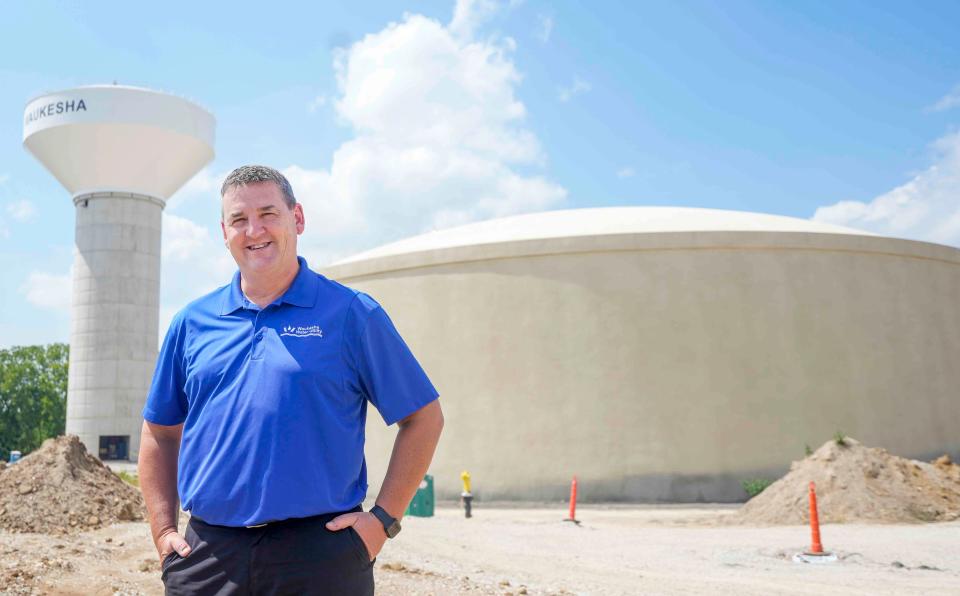
But I'm not the only one that did this project, there’s a whole team. I had a great management team that allowed me to do what I needed to do to get this done. Having that team at the water utility, having the consultant team support me.
It really was a team effort. And there's a lot of people to thank for this, like my family. There was a lot of working at home and missing events that I should have been at.
I am the only one that has been here the entire time. One day, I'll look back and think we got it done, and set a precedent while the whole country was watching.
More: How could Chicago sell Lake Michigan water to Joliet, 35 miles away? Five questions answered.
Caitlin Looby is a Report for America corps member who writes about the environment and the Great Lakes. Reach her at clooby@gannett.com or follow her on Twitter @caitlooby.
Please consider supporting journalism that informs our democracy with a tax-deductible gift to this reporting effort at jsonline.com/RFA or by check made out to The GroundTruth Project with subject line Report for America Milwaukee Journal Sentinel Campaign. Address: The GroundTruth Project, Lockbox Services, 9450 SW Gemini Dr, PMB 46837, Beaverton, Oregon 97008-7105.
This article originally appeared on Milwaukee Journal Sentinel: Dan Duchniak on how he brought Lake Michigan water to Waukesha

